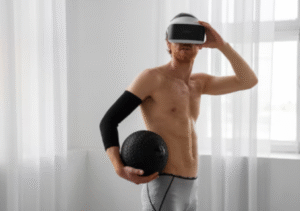Wearable technology is increasingly transforming healthcare monitoring by enabling real-time tracking of vital signs and health metrics. This shift allows individuals to actively manage their health, promoting a shift from reactive to proactive care. As data flows seamlessly between patients and providers, the potential for personalized treatment grows. However, this evolution raises questions about privacy, data accuracy, and the implications for traditional healthcare practices. What challenges and opportunities lie ahead in this dynamic landscape?
The Rise of Wearable Technology in Healthcare
How have advancements in technology transformed patient care?
The rise of wearable technology in healthcare reflects significant market trends and increasing user adoption. Devices such as fitness trackers and smartwatches empower individuals by providing real-time health insights.
This shift not only enhances patient engagement but also fosters a sense of autonomy, enabling users to take control of their health and well-being.
Real-Time Health Monitoring and Data Collection
As wearable technology continues to evolve, real-time health monitoring has emerged as a pivotal aspect of modern healthcare, enabling seamless data collection and analysis.
Through continuous tracking, these devices provide real-time analytics that empower individuals to take control of their health.
This immediate feedback not only enhances personal awareness but also facilitates proactive health management, fostering a culture of informed decision-making in wellness.
Enhancing Patient-Provider Communication
Although traditional methods of communication between patients and healthcare providers have served their purpose, the integration of wearable technology is revolutionizing this interaction.
Wearables enhance patient engagement by providing real-time health data, thereby bridging communication barriers. This immediate access to information fosters more informed discussions, empowering patients and allowing providers to deliver personalized care, ultimately transforming the dynamics of healthcare communication.
The Future of Personal Health Management With Wearables
While the landscape of personal health management is evolving rapidly, wearable technology is set to play a pivotal role in shaping how individuals monitor and manage their health.
By facilitating personalized treatment and enhancing chronic disease management, wearables empower users to take charge of their well-being.
This shift will promote autonomy, enabling individuals to engage proactively with their health data and optimize their lifestyle choices.
Conclusion
As wearable technology continues to evolve, it stands as a modern-day Prometheus, igniting a revolution in healthcare monitoring. By harnessing real-time data and fostering enhanced communication between patients and providers, wearables empower individuals to take charge of their health journey. The potential for personalized care and improved chronic condition management heralds a new era of autonomy in health management, suggesting that the future may not just be about living longer, but living better through informed choices.










